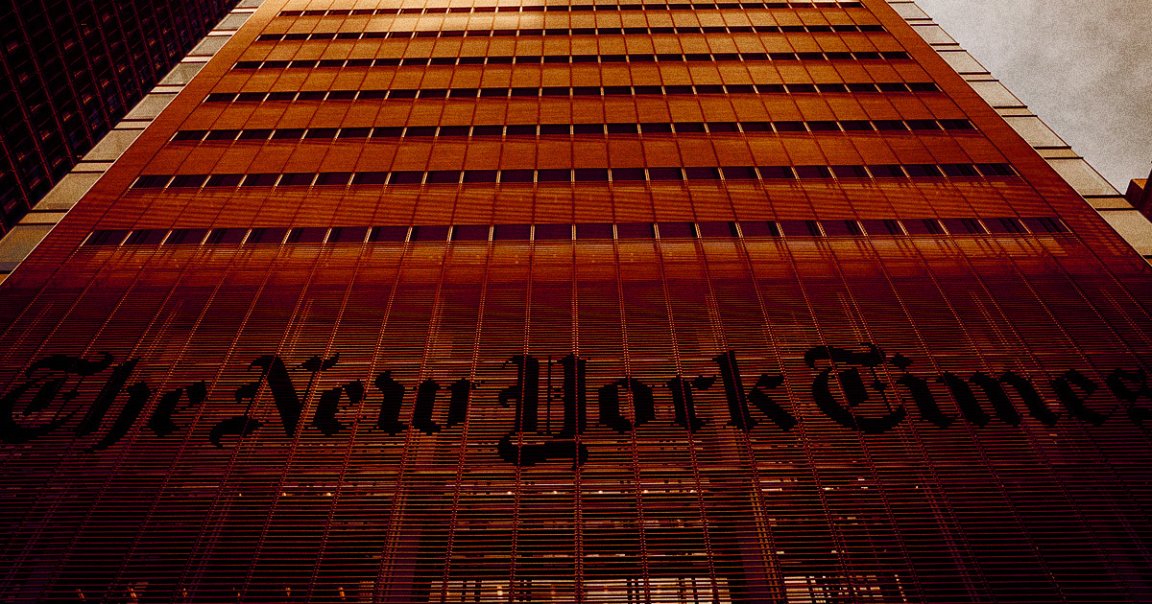
Decisions, Decisions
The New York Times is weighing a lawsuit against OpenAI over intellectual property infringement, NPR reports.
Per NPR, the NYT and OpenAI have been in the throes of heated negotiations for weeks, in an attempt to reach a deal that would grant OpenAI a licensing deal to access to the NYT’s vast content library. But those negotiations apparently haven’t been going as planned, and the newspaper’s lawyers, behind closed doors, are now exploring the possibility of legal action against the hype-rich Silicon Valley firm.
From where we’re sitting? It looks like the NYT might have some real leverage here. And if OpenAI were to lose such a high-profile case, the AI lawsuit floodgates would almost certainly fly open.
High Price
According to NPR’s sources, the NYT isn’t just viewing OpenAI and its chatbot ChatGPT as a tool, per se. Its primary concern is that OpenAI, armed with troves of data scraped from the web and able to churn out text accordingly, is actually a direct competitor. And while it’s one thing to have a more traditional competitor — another newspaper, online publishing — it’s wholly another to find yourself directly competing with a scraped data-trained plagiarism engine that’s likely remixing your reporting, among others’, for profit.
And as NPR points out, if a federal judge were to find that OpenAI had improperly vacuumed up any of the paper’s material into its AI training data, the copyright penalties could be incredibly destructive for the AI firm. Federal law mandates that copyright violators can face fines to the tune of $150,000 for each infringement. OpenAI has pretty deep pockets, but that’s a pretty steep price — and especially so if the firm finds itself liable not only in the potential case against the NYT, but in any number of similar suits down the line.
“If you’re copying millions of works, you can see how that becomes a number that becomes potentially fatal for a company,” Daniel Gervais, the co-director of the intellectual property program at Vanderbilt University, told NPR. “Copyright law is a sword that’s going to hang over the heads of AI companies for several years unless they figure out how to negotiate a solution.”
Of course, this is all very speculative, and the NYT has yet to make any official moves to sue. But the copyright lawsuits against OpenAI and other AI ventures keep stacking up, and at some point, the other shoe could drop — though whose favor it will fall towards still remains to be seen.
More on AI and copyright: Sarah Silverman Sues OpenAI for Copyright Infringement